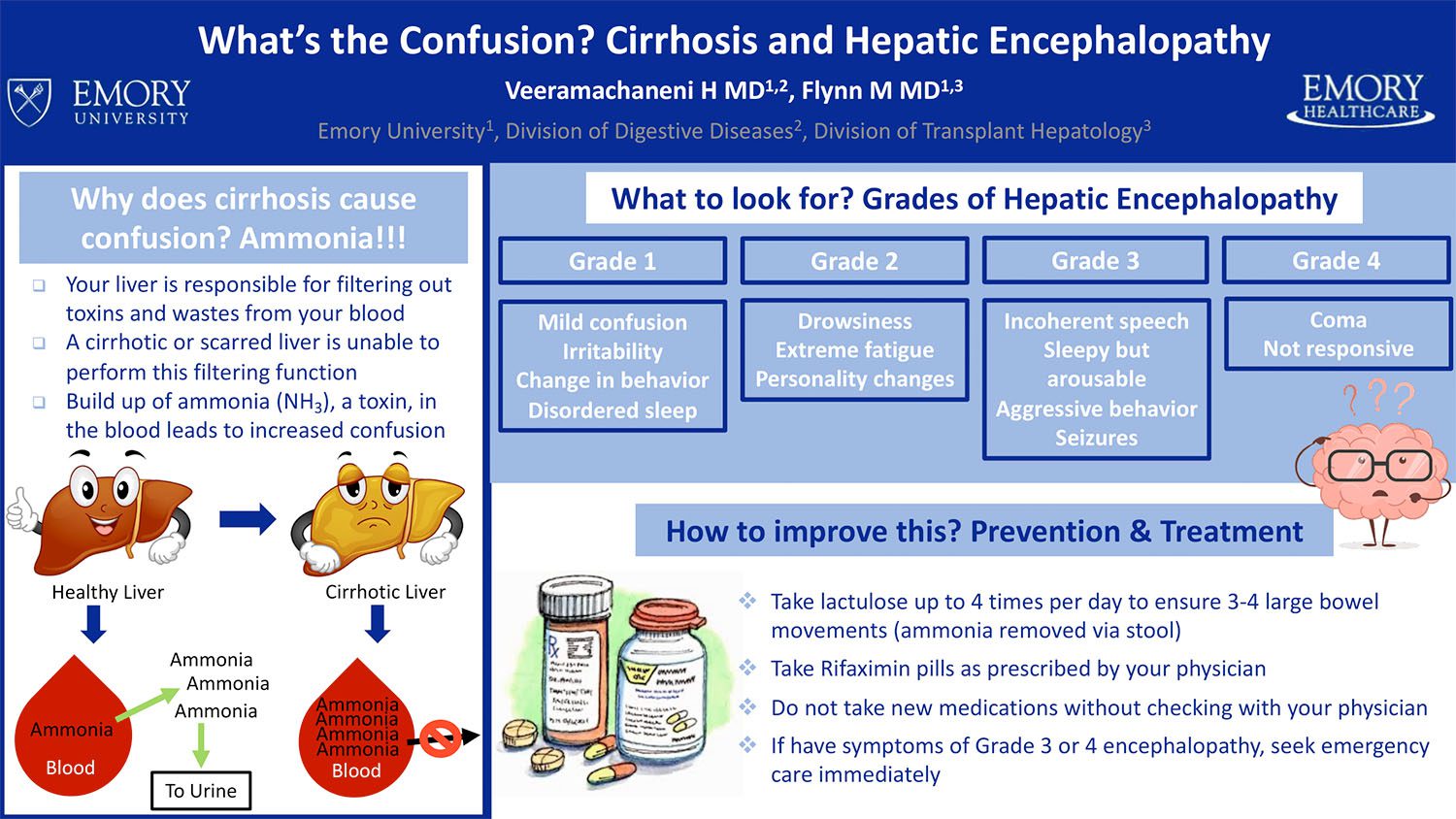What is the Confusion? Cirrhosis and Hepatic Encephalopathy
Hima Veeramachaneni, MD and Mary Flynn, MD
Emory University School of Medicine
This presentation is an excerpt from the ALF 2021 Poster Competition. This competition showcases posters and a brief video created by early career investigators from across the country on six areas of educational focus: fatty liver disease, liver cancer, liver transplantation, pediatric liver disease, rare liver disease and viral hepatitis. Participants are tasked with translating complicated medical information into a poster which can be easily understood by patients or the public. Posters are reviewed by a formal panel of judges comprised of Medical Advisory Council members, Board Members and friends of ALF to select a winner in each category.
Hepatic encephalopathy is the confusion that occurs in end stage liver disease, known as cirrhosis. In cirrhosis, the liver is completely scarred and unable to perform its normal filtering functions to remove toxins and wastes from the body. One of the toxins that builds up in the body is ammonia, NH3, and leads to confusion. In a healthy liver, ammonia is broken down and removed from the body in urine. In cirrhosis patients, this ammonia builds up in the blood and around the brain, causing confusion. There are grades to hepatic encephalopathy and the increasing ammonia levels causes more symptoms to develop. In grade 1, the symptoms are mild and result in mild confusion and changes in the sleep cycle. In grade 2, there may be more personality changes and extreme fatigue. In grade 3, patients may have incoherent speech, may be very sleepy but arousable, and may even have seizures. In grade 4 or the most severe hepatic encephalopathy, patients can be in a coma and non-responsive. The way to treat or prevent this is to take lactulose to help remove the ammonia through the stool. The goal is to have 3-4 large bowel movements per day to remove adequate ammonia from the blood. Some patients will also be prescribed an antibiotic called rifaximin to further help with the confusion. It is important to ensure that all medications that are taken are approved by the patient’s physician, as those medications can further contribute to hepatic encephalopathy. For those patients with grade 3 or grade 4 encephalopathy, it is important to seek emergency care immediately. Overall, hepatic encephalopathy can be very scary but with the proper measures it can be prevented and treated appropriately.
Last Updated on December 1, 2021
Share this page






